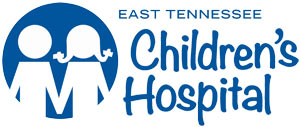Best Price
In some cases, patients in a twilight state of consciousness commit extremely dangerous aggressive actions. In such cases, after clearing consciousness, a depressive reaction to the committed act and its consequences may occur. These absurd and dangerous actions of patients, as well as sometimes their fragmentary cries while performing such actions, indicate that twilight disorders of consciousness can be accompanied by hallucinatory-delusional experiences.
The restoration of clarity of consciousness usually occurs gradually and may be accompanied by the occurrence of a transient, sharp impoverishment of mental activity, due to which patients seem weak-minded. In some cases, terminal sleep occurs. Twilight stupefaction usually lasts minutes to hours and is accompanied by complete amnesia. PSYCHOORGANIC SYNDROME is a symptom complex accompanied by a decrease in memory, intelligence and affective lability.
Memory impairments in psychoorganic syndrome affect, to one degree or another, all three of its main aspects. memorization, retention (the ability to retain what is perceived) and reproduction (the ability to activate memory reserves). In some cases, dysmnestic disorders predominate, in others - amnestic ones, primarily fixation and (or) progressive amnesia. Memory impairments, especially in the form of amnesia, are often accompanied by the appearance of figurative memories of past life events, and in some cases, confabulations.
Psychoorganic syndrome is accompanied by a violation of the perception of the environment - a decrease or even the inability to grasp any situation entirely. patients perceive only particulars in it. The amount of attention is limited, especially passive attention - the automatic reaction to an emerging stimulus. Impairments in memory, perception and attention are closely related to deterioration of orientation - first in the environment, and as the condition worsens - in one�s own personality.
Various aspects of intellectual activity are lost unevenly. So far, no other rule has been discovered here, except that the later acquired skills suffer first, while the old ones persist for a long time and in them patients are even able to surpass healthy individuals. Violation of intellectual activity is evidenced by a decrease in the level of judgment (the ability to understand received information, weigh various alternatives and form a clear plan of action) and inferences (establishing relationships and interconnections between individual objects of the external and internal world).



